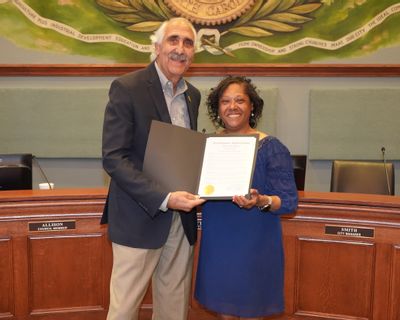Did you know that you can save on your energy bill by washing your clothes in cold water?
Did you know you can save on your energy bill by washing your clothes in cold water? 🤔
When possible, try washing with cold water. ENERGY STAR says that water heating consumes about 90% of the energy it takes to operate a clothes washer. Just imagine the savings if you go cold!

Laundry Best Practices
As seen on energystar.gov
Clothes Washer Tips
- Always use HE (High Efficiency) detergent.
- Front-loading clothes washers are designed to use High Efficiency detergent. Using regular detergent creates too much suds, which will affect the machine’s washing and rinsing performance. Over time, it can lead to odors and mechanical problems.
- Fill it up.
- Clothes washers use about the same amount of energy regardless of the size of the load, so run full loads whenever possible.
- Wash in cold water.
- Water heating consumes about 90% of the energy it takes to operate a clothes washer. Unless you’re dealing with oily stains, washing in cold water will generally do a good job of cleaning. Switching your temperature setting from hot to warm can cut energy use in half. Using the cold cycle reduces energy use even more.
- Use a drying rack or hang clothes outside.
- Where and when possible, air-drying clothes instead of using a dryer not only saves energy, but also helps them last longer.
- Avoid the sanitary cycle.
- This super-hot cycle, available on some models, increases energy use significantly. Only use it when absolutely necessary.
- Activate the high spin speed option.
- If your clothes washer has spin options, choose a high spin speed or the extended spin option to reduce the amount of remaining moisture in your clothes after washing. This decreases the amount of time it takes to dry your clothes.
- Leave the door open after use.
- Front-loading washers use airtight seals to prevent water from leaking while the machine is in use. When the machine is not in use, this seal can trap moisture in the machine and lead to mold. Leave the door ajar for an hour or two after use to allow moisture to evaporate. Make sure children do not climb into the machine while the door is open.
- Rinse the washer every month.
- Some manufacturers recommend rinsing the washer each month by running a normal cycle with 1 cup of bleach to help reduce the risk of mold or mildew buildup. Consult the product owner’s manual before attempting.
- Sensor Drying.
- Use sensor drying, not timed drying. ENERGY STAR certified dryers incorporate advanced moisture sensors to help reduce your dryer’s energy use. This feature ensures that your dryer will automatically shut off when clothes are dry.
- Low heat setting.
- Longer drying cycles on a low heat setting use less energy. When you purchase an ENERGY STAR certified clothes dryer, look in the informational materials shipped with the product for which cycle was tested for certification and how the dryer’s other cycles or settings may use more or less energy.
- Consider gas.
- Eighty percent of dryers in the US are electric. If you have the option, consider using a gas dryer to save money and reduce your environmental impact.
- Savings by the pair.
- A full-size electric certified dryer saves $200 in energy bills over the life of the product. An ENERGY STAR certified washer/dryer pair will save even more energy and money while doing your laundry. Clothes washers that have earned the ENERGY STAR incorporate advanced technology and functionality to get significantly more water out of your clothes in its final spin cycle than a conventional model. This makes it easier for clothing to dry in an ENERGY STAR certified dryer using less heat. Less heat means energy savings and reduced wear and tear on your clothes caused by over-drying.
- Clean the lint filter.
- Cleaning the filter after every load will improve air circulation and increase the efficiency of the dryer. It’s also an important safety measure.
- Scrub the lint filter regularly if you use dryer sheets.
- Dryer sheets can leave a film on the filter that reduces air flow and, over time, can affect the performance of the motor. Use a toothbrush to scrub it clean once a month.
Read the full story and learn more from Energy Star here.








